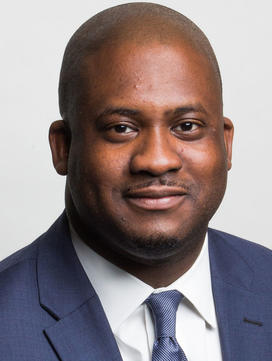Young Mayor Garrett Brown ’09 Is All-In for Albion, Mich.
In January, Garrett Brown ’09 was sworn in as the youngest mayor in the history of Albion, Mich. But the 29-year-old doesn’t emphasize that distinction. “At the end of the day, it’s about getting things done and delivering the promises you made to voters,” says Brown, who was a city councilman for Albion’s third precinct for six years before running for mayor.

“I wanted to get involved and give back. The main, motivating factor was focusing on the power of local government to bring about change — that’s really the core,” he explains. “When the former mayor [Joe Domingo] decided not to run, I thought it would be a good time for me to run. It was a presidential election year and usually turnout is great, so I ran and I won.”
Located in Calhoun County, approximately two hours from Detroit, Albion is a unique community. It’s a foundry town that is home to Albion College, one of Michigan’s prominent liberal arts colleges. Among Brown’s top priorities is bridging the gap between the city and the college.
“Albion is really a microcosm of America because in the middle of the rural areas of Michigan, you have this mini-suburb where two-thirds are white, 29-30 percent African-American, and then there’s even smaller minority groups,” says Brown. “The city council consists of the mayor and six council members. After the last election, [five of the six] council members are African-American in a town where the majority is not African-American. That really speaks to the level of integration and tolerance Albion has. It’s a great opportunity for the community going forward.”
As an undergraduate, Brown chose Princeton with a plan to study political theory, but he found the politics department to be too large and majored in religion instead.
“I wanted more direct contact with faculty,” he says. “I decided to go into religion because you had a lot of faculty members who did a lot of work on religion, ethics, and politics — Eric Gregory, Eddie S. Glaude [*97], Jeffrey L. Stout.
“What stands out about Princeton is what I always say to people: It’s basically a liberal arts college on steroids. Other universities have large professional graduate schools. Princeton really is undergraduate-focused ... .[It] had all the faculty and intellectual firepower of a major research university that was focused on undergrads.”











No responses yet